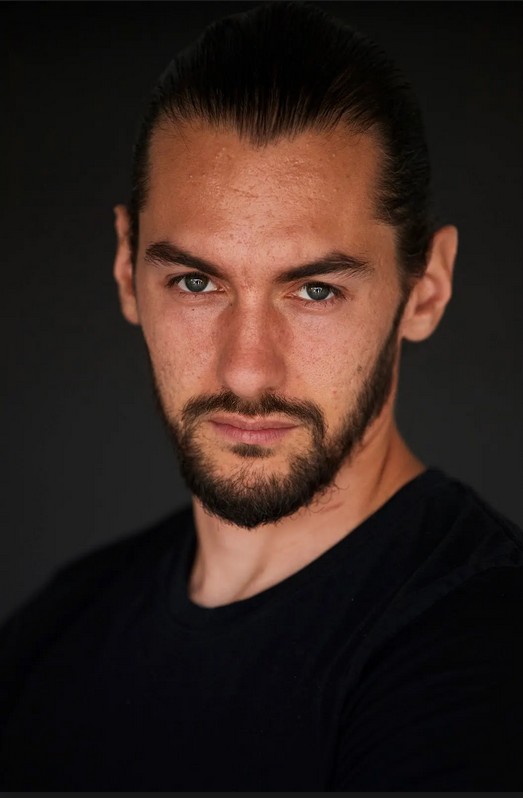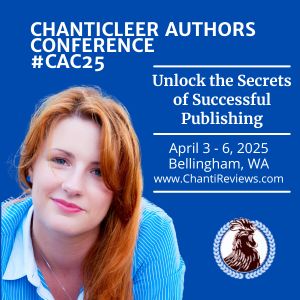
Every voice is unique, and every perspective is worthy of knowing.

Women authors have always held an illustrious place in the literary world, and while their work is often talked about in terms of the advancement of women overall, many women authors have also contributed to the business of telling stories by challenging the technical conventions of writing as well as presenting a woman’s authentic experience.

Storytelling is the thread that connects our societal web,
so it’s imperative there is room for everyone.
National Women’s History Month
For National Women’s History Month, celebrated each year in March, Chanticleer celebrates the fantastic women who forged new literary paths and have been an extraordinary influence and joy to have in our own community. We are delighted to take this time and recognize just a few influential women authors in history.
Disc of Enheduana, Akkadian Period, circa 2300BCE
The World’s First Author: Enheduana
The most influential in the cannon of women authors has to be Enheduanna (circa 2300BC). A Mesopotamian high priestess, she is the world’s first named author, and she is credited with writing forty-two poems and several hymns in cuneiform on clay tablets. She used her writing to help her father, Sargon the Great, unite his empire (also the world’s first) under a shared religion. Her poem titled Exhaultation of Inana is her most famous work, but her hymns went on to set the tone, style, and form of the hymns quoted in the Bible to this day.
You, Inanna,Foremost in Heaven and Earth.Lady riding a beast,You rained fire on the heads of men.Taking your power from the Highest,Following the commands of the Highest,Lady of all the great rites,Who can understand all this is yours?

Unwavering Social Commentary: Jane Austen
Using writing to influence positive change is a noble endeavor. Jane Austen, (1775 – 1817) author of Sense and Sensibility and Pride and Prejudice, was an outspoken critic and commentator at a time when women had little opportunity to express their thoughts. Her books explore the strict social structure and financial instability of women born in her era. She infused her stories with irony and humor, making them digestible to a larger audience who may not agree with some of the underlying commentary within the story. Austen is credited with creating free indirect discourse, a literary style that combines third person and first person narration, giving readers access to her characters’ inner thoughts to foster intimacy and emotional bonds with the reader.
I declare after all there is no enjoyment like reading! How much sooner one tires of any thing than of a book! — When I have a house of my own, I shall be miserable if I have not an excellent library.
– From Pride and Prejudice

An Examination of Why We Are the Way We Are; Charlotte Brontë
Writing, it can be said, is our thoughts laid bare. This idea came to life through the writing of Charlotte Brontë (1816-1855). Her most notable work, Jane Eyre, is a bildungsroman following the protagonist through her growth to adulthood. It revolutionized prose fiction by focusing on moral and spiritual development through an intimate first-person narrative, thereby exhibiting that psychological journey in the actions and events of the story. She has been called the “first historian of the private consciousness” and the literary ancestor of writers such as Marcel Proust and James Joyce.
I am no bird; and no net ensnares me: I am a free human being with an independent will.
– From Jane Eyre

Frank Authenticity in Representation; Chimamanda Ngozi Adichie
Honesty in her depiction of her community, Chimamanda Ngozi Adichie (1977) creates prose that gets right to the heart of things, honestly and authentically. This isn’t easy when your writing includes multiple characters’ perspectives within one story. In Ngozi Adichi’s second book, Half of a Yellow Sun, she offers five points of view that tell of the brutality of the Nigerian Civil War. Her ancestral Igbo background deeply informs her writing as she explores the themes of religion, immigration, gender and culture.
We teach girls to shrink themselves, to make themselves smaller. We say to girls, you can have ambition, but not too much. You should aim to be successful, but not too successful. Otherwise, you would threaten the man. Because I am female, I am expected to aspire to marriage. I am expected to make my life choices always keeping in mind that marriage is the most important. Now marriage can be a source of joy and love and mutual support but why do we teach girls to aspire to marriage and we don’t teach boys the same? We raise girls to see each other as competitors not for jobs or accomplishments, which I think can be a good thing, but for the attention of men. We teach girls that they cannot be sexual beings in the way that boys are.
– From We Should All Be Feminists

Sharp Intelligence Creating Intrigue; Agatha Christie
The world’s bestselling author of fiction is mystery writer, Agatha Christie (1880-1975). Author of sixty-six detective novels, she excelled at creating stories that placed the reader in the middle of a mystery, offering them a chance to solve it as her character uncovers the clues. Her writing is known for its sharp dialogues, fast-paced narration, and clever plot twists, and her skills in misdirecting the audience on where the story goes is legendary. Christie’s smart characters and intriguing murder cases makes her one of the best in the genre, even to this day.
It’s no good starting out by thinking one is a heaven-born genius—some people are, but very few. No, one is a tradesman—a tradesman in a good honest trade. You must learn the technical skills, and then, within that trade, you can apply your own creative ideas; but you must submit to the discipline of form.
– From An Autobiography
These are just a very few of the influential women writers we celebrate during National Women’s Month. In paying tribute, we acknowledge that storytelling is a human endeavor. Not one to be carried by a single group of writers, but rather a tool of self-expression that needs participation from all facets of society so that we can better relate to one another, learn from one another, and continue to grow as a society.
Chanticleer is proud to represent amazing women authors!
Celebrate women authors during National Women’s History Month
by picking up one of the novels written by these authors!

Exostar
By Rae Knightly
Gertrude Warner Grand Prize Winner
It has been said that “the Golden Age of Science Fiction is twelve.” Rae Knightly’s Sci-Fi adventure, Exostar, embodies this childlike sense of wonder that the best of the genre evokes in its readers.
Twelve-year-old child-robot Trinket takes off on a rocketing spaceship straight towards danger and excitement, with the mostly able assistance of the blue-furred spy and saboteur Woolver Talandrin. Trinket is searching for identity—as all the best young science fiction protagonists do. Woolver is trying to bring down an evil empire—as all the other best science fiction protagonists do.
Together they’ve been thrust into the kind of epic tale that is guaranteed to keep young readers on the edge of their seats—including the twelve-year-old that lurks inside every science fiction fan.

Portrait of a Feminist
By Marianna Marlowe
Marianne Marlowe’s memoir, Portrait of a Feminist, reveals the evolution of her feminism through a collection of thought-provoking essays.
“I would say, if it were possible, I was born a feminist” is at the heart of Marlowe’s story. She relates to this defining identity throughout years spent in Peru, California, and Ecuador, where she navigates childhood, marriage, motherhood, and a professional career.
The section titles reflect periods in Marlowe’s life that correspond to nature’s rhythms—“Seeds Planted”, “The Growing Years”, “Maturation”, and “Harvesting”—and maintain strong connections between her thematically-linked experiences.
As a Peruvian American woman, Marlowe navigates the concepts of gender, race, and culture from a personal and critical point of view.

Shelter in a Hostile World
By Mack Little
Shorts Grand Prize Winner
Shelter in a Hostile World, second installment in Mack Little’s Love and Peace series, is an epic tale of resistance, desire, and tragedy, saturating readers in the complexity of Igbo culture.
Little paints a character-rich portrait of the horrors of enslavement and the unthinkable violence against women in the Caribbean, locking people together in relationships molded by adversity.
Set in 17th century Igboland—the invaded region of Nigeria — and on the island of Barbados, Shelter in a Hostile World is a searingly brief novel packed with mesmerizing prose. It blends genres to create a literary language entirely its own.
Sea Tigers and Merchants
By Sandra Wagner-Wright
Two families vie for power in mercantile 18th-century Salem. Sea Tigers and Merchants, the second book in Sandra Wagner-Wright’sSalem Stories series, returns to a world of treacherous storms, tantalizing wealth, and the demands of high society on its children.
Elias Hasket Derby, Sr. has kept his promise to his wife Eliza—they rule Salem. Hasket’s merchant ships bring in great fortune, while Eliza holds court as the most influential woman in the city’s social spheres. And their ambitions have grown to meet their station. Hasket launches his riskiest endeavor—the Grand Turk,a ship so massive she’s nearly too heavy to be pulled out of the docks. Meanwhile Eliza, snubbed by George Washington’s stay at another family’s mansion, insists they build a house so grand it will put all others to shame.
Such success, of course, draws the envious eye of Hasket’s competitor.

If Two Are Dead
By Jeanne Matthews
An enigmatic raven-haired beauty mysteriously murdered and cast into a stranger’s grave, left for scurrilous resurrection men to uncover in the dark of night! In Jeanne Matthews’s historical mystery If Two Are Dead, Detectives Quinn Paschal and Gabriel Garnick take up this case of vicious murder and ignite a mire of secrets and resentment at the pinnacle of 1867 Chicago society.
After catching the body-snatchers in the act of stealing a freshly buried corpse to sell for medical research, Quinn and Garnick realize the body found in Emmett Buck’s grave is by no means that of a young man, but that of a woman, whose bloody head and clean clothes point to a complex mystery. With only her appearance and some identifying jewelry, Quinn insists they can and will catch the killer of ‘Marietta A.V.’ Enlisting the help of an unscrupulous journalist, they locate her husband, a wealthy and influential doctor.
The woman’s husband, Dr. Horace E. Vinings, offers them an incredible reward if they can find Marietta’s killer. But Quinn and Garnick suspect he might not like the answer he receives.
Are you a writer looking for insight and inspiration?
Join us at
The Chanticleer Authors Conference

Featuring authors like J.D Barker and book doctor Christine Fairchild, our annual conference is shaping up to be excellent! You won’t want to miss out on the best tips around the business of being an author!
Seating is Limited. The esteemed WRITER Magazine (founded in 1887) has repeatedly recognized the Chanticleer Authors Conference as one of the best conferences to attend and participate in for North America.
We’d love to see you there!










Leave A Comment